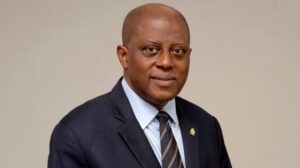
According to the Nigerian Bureau of Statistics, NBS, Nigeria’s unemployment rate has grown by 1.2 percent.
This came on a day the Central Bank of Nigeria also raised the Monetary Policy Rate, MPR, by 27.25 per cent.
The NBS, which disclosed this in its Nigeria Labour Force Survey Report released yesterday, said: “The unemployment rate for Q1 2024 was 5.3%, showing an increase from 5.0% recorded in Q3 2023. The unemployment rate among males was 4.3% and 6.2% among females. By place of residence, the unemployment rate was 6.0% in urban areas and 4.3% in rural areas for Q1 2024. “Looking at the youth, the youth unemployment rate was 8.4% in Q1 2024, showing a decrease from 8.6% in Q3 2023.
“Unemployment based on educational attainment shows that the unemployment rate among persons with post-graduate education was 2.0%, 9.0% among those with post-secondary education, 6.9% for those with secondary education, and 4.0% among those with primary education in Q1 2024.”
The survey also showed that the share of underemployed Nigerians declined 10.9 per cent in Q1’24 from 12.2 per cent in Q1’23.
According to NBS, underemployment is the share of the employed population who work less than 40 hours per week but are willing and available to be engaged for additional work hours.
It stated: “In Q1’24, the share of underemployed Nigerians was 10.9%, a decline of 1.4 percentage points from the 12.3 per cent recorded in Q3 2023.
“The share of the under-employed men was 8.5%, while the underemployment rate among women was 12.5% for Q1 2024. Disaggregating by place of residence, the underemployment rate in urban areas was 9.7% and 11.8% in rural areas.’’ On working-age Nigerians, NBS said: “In Q1 2024, 73.2% of Nigeria’s working-age population was employed, down from 75.6% in Q3 2023.
“Disaggregating by sex, the employment-to-population ratio was 74.2% for males and 72.3% for females in Q1 2024.
“Additionally, the employment-to-population ratio in urban areas was 69.5% and 78.9% in rural areas in Q1 2024. “This is a decrease in the ratio compared to the 71.1% and 80.7% in Q3 2023, respectively.
“The proportion of persons in self-employment declined from 86% in Q1 2023 to 84% in Q1 2024. Survey findings reveal an increase in the share of employed persons primarily engaged as employees between Q1 2024 (16.0%) and Q3 2023(12.7%).
“The self-employment rate among females was 87.9% while males were 79.9%. “Disaggregation by place of residence, the rate of self-employed persons in rural areas was 91.9% and 78.2% in urban areas.”
Meanwhile, Private sector operators, including the Nigerian Association of Chambers of Commerce Industry, Mines and Agriculture, NACCIMA, Association of Small Business Owners of Nigeria, ASBON, Centre for the Promotion of Private Enterprise, CPPE, and other economic experts have warned against the increase in the Monetary Policy Rate, MPR, by the Central Bank of Nigeria, CBN.
The operators also stressed the fact that an increase in rate to 27.25% from 26.75% is detrimental to investment and economic growth of the country, even as they argued that the cost of borrowing will be further exacerbated, possibly well above 35% or more, creating more bad debt for banks or other financial institutions.
The MPR, set by the Monetary Policy Committee, MPC, of the CBN is a benchmark of the interest rate charged by banks to their customers.
This is just as an analyst at Renaissanceafrica Company, Mr. Ejike Nwuba disagreed with the latest unemployment figures, noting that the reality on the ground was far worse than the 5.3% rate released by the National Bureau of Statistics, NBS.
Meanwhile, Central Bank of Nigeria, CBN, yesterday raised the Monetary Policy Rate, MPR, by 50 basis points from 26. 75% to 27.25%, while retaining the asymmetric corridor of +500/-100 basis points.
The CBN governor, Mr Olayemi Cardoso, who disclosed this at the end of the 154th Monetary Policy Committee, MPC, meeting in Abuja yesterday, said the decision to further hike the rate was that of 11 members of the 12-member MPC present at the meeting.





